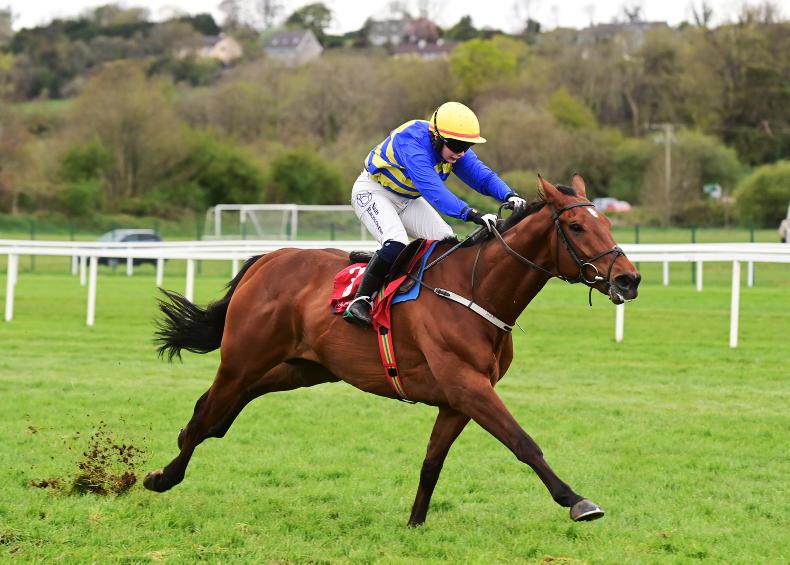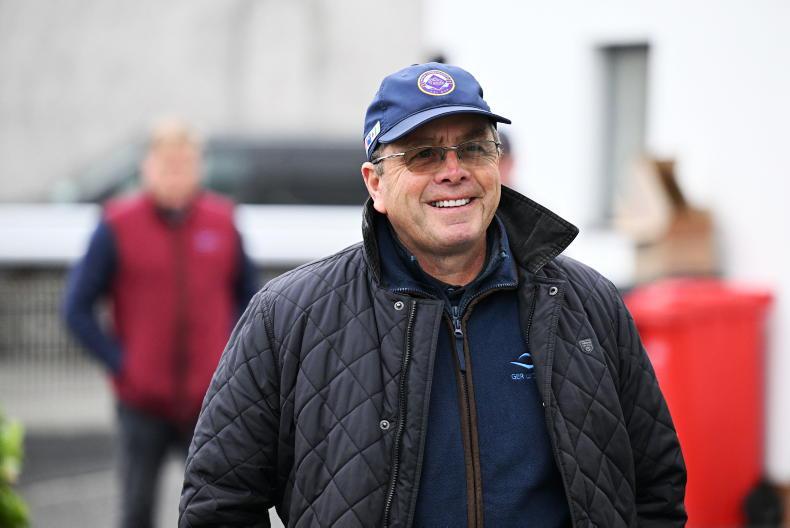WE might only be a week out from a cracking Betfred Derby full of intriguing storylines but Willie Mullins’ dominance in National Hunt racing continues to remain a topic of keen discussion.
Horse Racing Ireland chief executive Suzanne Eade weighed in on the subject in The Big Interview among these pages last week, following on from a Punchestown Festival that saw the Closutton master emerge with a whopping 17 winners - eight of which were odds-on and only one bigger than 5/1.
Despite some outlining a desire to cap the number of horses in training or runners in Grade 1s that any trainer can saddle, Eade insisted she has no intention of introducing limits on powerhouse yards. Instead, she in fact views Mullins as a facilitator of Irish racing’s growth.
The topic was again discussed at this week’s Anglo-Irish Jumps Classifications press conference, where the Mullins-trained Galopin Des Champs and Energumene were confirmed as the highest-rated chasers across Ireland and Britain for 2022/23.
IHRB senior National Hunt handicapper Andrew ‘Sandy’ Shaw described Mullins as ‘the Pep Guardiola of Irish racing’ and the legendary handler’s increasing power is clearly creating one of the most challenging environments for trainers in several decades.
For example, there were 365 trainers licensed trainers in Ireland last year. Across just five days at the 2023 Punchestown Festival, Mullins’ haul of €1.86 million in prize money was more than 363 others earned for the entire season. The 2022/23 campaign also saw Mullins record his highest number of winners yet, 237.
On the rise
However, despite middle-tier trainers arguably being the hardest hit in the wake of Mullins’ growth, there were definitely some greenshoots to emerge on the training landscape last season.
Trainers with ambitions of competing on the biggest stages must surely take heart from the rise and rise of John McConnell, who enjoyed by far his best campaign domestically yet - both in terms of prize money and winners.
Not long ago - during the 2017/18 season in Ireland - McConnell had just one winner from 41 runners. Over the previous seven seasons, only once did he manage to record more than three winners in a single campaign on home soil.
Having gradually progressed each season since 2017/18 with totals of eight, 11, 15 and 17 winners coming into the 2022/23 campaign, McConnell enjoyed an annus mirabilis last term when notching a career-best 30 winners over jumps in Ireland.
Five seasons on from a solitary domestic winner, he earned over €500,000 last term.
Throw in a breakthrough Cheltenham Festival success with Seddon in the Magners Plate, a valuable handicap hurdle win at the Aintree Festival with Fennor Cross and a Punchestown Festival double, and there’s every indication the Co Meath-based trainer is going to continue climbing up the standings.
The story has been well told by now of how Gordon Elliott managed to become Mullins’ biggest rival with a highly admirable, self-built model, but the climate has changed somewhat now compared to when the Cullentra handler was first making his mark in National Hunt racing. His presence has helped drive the reigning champion on to new levels, while a beefed-up point-to-point sector means recruiting capable young jumps horses at the sales is increasingly difficult for trainers.
McConnell has gradually worked his way up by winning with low-grade horses on the flat and over jumps, reguglarly travelling his horses to Britain - even when prize money levels there are poor.
Recording winners, wherever they may be, has given him a platform to now attempt to drive greater levels of investment in young horses than was the case a few years ago. He also sold on future Cheltenham Festival winner Good Time Jonny and Group 1-winning sprinter A Case Of You, who would have added depth to his string.
Recruitment key
Mullins is clearly a generational talent when it comes to training, but there are unquestionably many astute and talented horsemen and women across Ireland also capable of delivering big-race success when dealing with the right stock, though they may be currently sat well outside the top 20 standings.
Mid-tier trainers being able to source quality stock - and then keeping hold of them - is arguably the single biggest influence on the lack of diversity in top-notch races when it comes to the trainers who are represented.
Still, this is no reason to punish Mullins. His recruitment systems are outstanding and his ability to attract strong investors, including international owners, deserves immense credit.
We have seen this season, though, that top horses can clearly excel for non-powerhouse stables. Barry Connell, for example, has reaped the benefits of being able to invest in smart young horses and bringing them along astutely.
His background and training model is much different to McConnell, but he came away with 19 winners domestically last season from just 60 runners. Among them were brilliant Cheltenham Festival hero Marine Nationale, Good Land, who hit Grade 1 heights at the Dublin Racing Festival, and Leinster National winner Espanito Bello.
Cromwell growth
In the same season that McConnell trained a single winner over jumps in Ireland (2017/18), Gavin Cromwell notched eight successes and was transitioning away from his career as a farrier.
In the years that have followed, the multiple Cheltenham Festival-winning trainer has registered more than 250 winners over jumps in Ireland (including 58 last season and a career-high prize money haul of €971,580). He is also proof that trainers can progress through the ranks with the right mix of factors.
Without question, times are extremely hard for trainers trying to make their presence felt at the highest levels. Mullins being responsible for 47% of all Grade 1 runners and 67% of Grade 1 winners in Ireland last season speaks volumes about the challenge others are facing.
But tightening up the bloated blacktype programme and converting certain Grade 2s and Grade 3s into handicaps can open up opportunities and enhance competition - something that would surely help betting revenues, which will be increasingly important in the new media rights deal for 21 tracks.
Prize money in the middle-tier of racing can certainly be better too, although the flat is arguably in need of greater attention than National Hunt.
Programme adjustments
We have had a €16,500 handicap chase and handicap hurdle run already this month where the race conditions mean a horse rated 130 would carry 11st 12lb. For context, an Irish mark of 130 would have been sufficiently good enough to have the option of running in a range of Cheltenham Festival handicaps last spring.
The winner of these races has taken home €9,900 each, to be divided up among connections. Last weekend at Wexford, the 88-rated winner of a handicap hurdle for horses in the lowest ratings band (80-95) collected €6,300. There can be a significant difference in quality between these classes, but not an enormous difference in prize money.
HRI has made positive steps in terms of the programming of races, with auction maiden hurdles introduced, as well as maiden hurdles for horses who have been unplaced and races restricted to trainers with less than a certain number of winners a year. The IRE Incentive has been a welcome addition too, with the winning owner of an Irish-bred horse in selected races collecting a €10,000 sales voucher to be used on other Irish breds at domestic sales.
The latter programme could be expanded over jumps, though, given the concerns over small to middle-sized operators in this sphere. In 2023, there are 42 IRE Incentive races scheduled on the flat in Ireland, 63 on the flat in Britain, but just 19 in Irish National Hunt racing.
Our system is not perfect and attempting to make ground in the shadows of Willie Mullins is unquestionably difficult, but there are trainers proving it can be done. Hats off to those navigating difficult roads - day in, day out - on the way to brighter destinations.


 This is a subscriber-only article
This is a subscriber-only article
 It looks like you're browsing in private mode
It looks like you're browsing in private mode











SHARING OPTIONS: